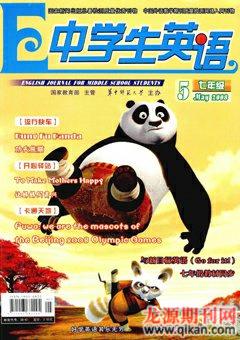新目标英语七年级 (下) Unit 9知识要点归纳
刘世一
【重点单词点将台】
1. visit v. 参观;访问
visit后可接人或地点名词,接人时意为“拜访某人”,接地点时意为“参观某地”。例如:
He will soon visit Hong Kong. 他不久将去香港。
We visited our friends in town. 我们去看望了城里的朋友。
2. stay v. 停留;逗留
stay是不及物动词,接地点名词时,名词前常加相应的介词。例如:
Im not staying at / in a hotel, Im staying with friends. 我没有住旅馆,我和朋友们住在一起。
值得注意的是,表示“住旅馆”常用stay at / in a hotel,而不用live at / in a hotel。
3. have v.从事;做;有
have的第三人称单数形式是has,过去式是had。当have意为“有”时也可用have / has got,当have用作行为动词时,后面所跟的名词不同时意义也不同。例如:
I have / have got many interesting books. 我有很多有趣的书。
What would you like to have for breakfast? 早餐你想吃什么?
Were not going to have any classes next week. 下星期我们不上课。
Im going to have a party. 我准备举行一次聚会。
Last Sunday we had a picnic. 上个星期天我们去野餐了。
have构成的常用固定短语有:have a rest 休息; have a look 看一看; have a cough咳嗽,等。
4. practice v. 练习;实践
practice既可作及物动词也可作不及物动词,其后可以接名词或动名词,但不接不定式。例如:
She practices (on) the piano every day. 她每天练习弹钢琴。
You must practice speaking English more. 你必须更多地练习说英语。
5. mountain n. 山脉; 山
mountain的近义词为hill,但hill 多指“小山,丘陵”。例如:
There are some hills in the picture, too. 图画里也有几座小山。
This kind of flower grows in high mountains. 这种花生长在高山上。
6. geography n. 地理学
geography是学科名词,通常用作不可数名词,学科名词还有physics, math, Chinese, English等。
7. spend v. 度过;花费
spend time / money on sth. 意为“在……花费时间 / 金钱”; 而spend time / money (in) doing sth. 意为“花费时间 / 金钱做某事”,此时介词in可省略。例如:
Our teacher has spent a lot of money on books. 我们的老师花了不少钱买书。
She spent two hours (in) writing the letter. 她花了两个小时写这封信。
8. down adv. 向下;在下面;下去;降下
down的反意词是up,常用短语look down / up意为“向下看 / 向上看”。
9. noadj. & adv. 没有
no作形容词时可修饰名词,当no作副词用时,可单独使用,主要用于对一般疑问句的否定回答,其反义词是yes。例如:
—Are you a teacher? 你是老师吗?
—No, Im not. Im a doctor. 不,不是。我是医生。
We have no classes today. 今天我们没有课。
There is no water in the cup. 茶杯里没有水。
注意区别:not作副词时不能单独使用,而常与be动词或助动词、情态动词构成否定形式。例如:
I do not / dont like eating eggs. 我不喜欢吃鸡蛋。
Tony can not / cant swim. 托尼不会游泳。
10. anything pron. 任何事;无论何事
anything常用于否定句、疑问句或条件状语从句中,而相应的不定代词something意为“一些事”,常用于肯定句中。
【重点短语小结】
1. what about ... ……怎么样
2. at home 在家
3. do some reading 读,阅读
4. middle school 中学
5. go shopping (去)购物
6. talk show 访谈节目
7. go for a walk
= take a walk
【句子运用】
1. Well, on Saturday morning, I played tennis. 嗯,星期六早上我打网球了。
表示星期几的早、中、晚要用介词on。例如:
I am going shopping with my classmates on Sunday afternoon. 我打算星期天下午和同学一起去购物。
动词play后面接球类或体育活动项目类名词时,名词前不加定冠词the。如果后面接乐器类名词时,必须要在该乐器名词前加定冠词the。试比较:
We all like playing basketball. 我们都喜欢打篮球。
Who is playing the piano now? 现在谁在弹钢琴?
2. Last week, we asked ten students at No. 3 Middle School what they did last weekend. 上周,我们询问了十位第三中学的学生周末干了什么。
动词ask后常接双宾语构成ask sb. sth.结构,本句中what they did last weekend是宾语从句。值得注意的是,宾语从句要用陈述句语序。例如:
I asked Li Ming how old he was. 我问李明多大年纪了。
3. Do you think everyone enjoys their weekends? 你认为每个人的周末都过得愉快吗?
动词enjoy意为“玩得愉快”,后面常接名词或反身代词。例如:
Enjoy your holiday. 祝你假期愉快。
Did you enjoy yourself at the party? 你在聚会上玩得开心吗?
4. Then it was time to go home. 是回家的时候了。
It be time ...句型主要有以下三种形式:
(1)It be time for sth. 意为“到什么事情的时候了”。例如:
It is time for class. 到上课的时间了。
(2)It be time to do sth. 意为“到做某事的时候了”。例如:
It is time to have lunch. 到吃午饭的时候了。
(3)It be time for sb. to do sth. 意为“到某人该做某事的时候了”。例如:
It is time for us to go to school. 我们该去上学了。


